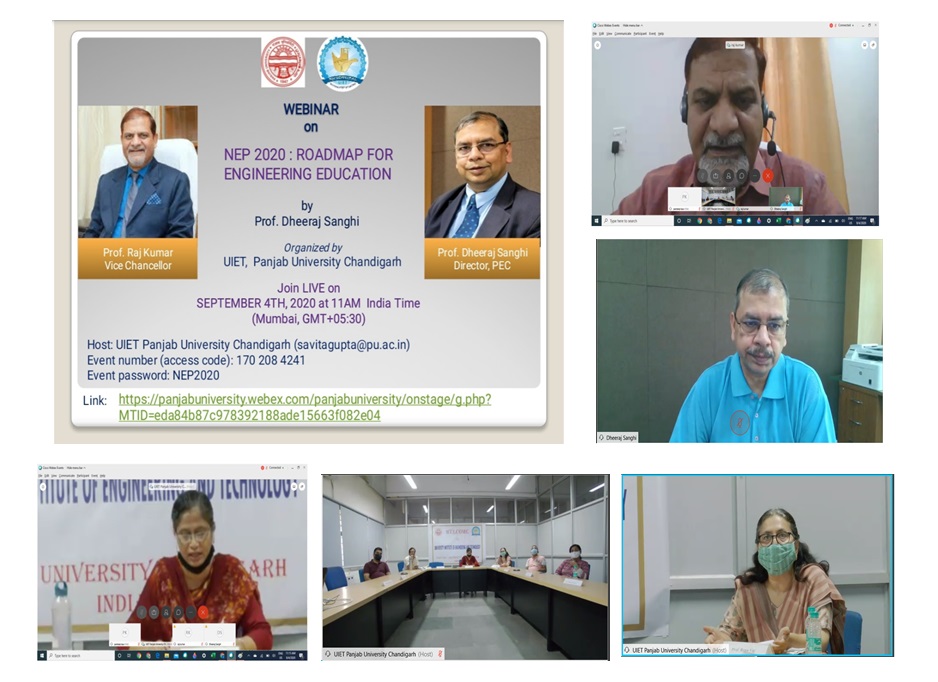Chandigarh September 4, 2020
A Webinar on New Education Policy: A roadmap for Engineering Education was organized by UIET, Panjab University, Chandigarh ,today. The event commenced with an introductory message by Prof. Raj Kumar, Vice Chancellor who has been associated with NEP since the beginning and also gave inputs in the framing of NEP. PU VC also gave some optimistic insight into the fact that although pandemic is a curse, it has certainly given the opportunity of development to domains like engineering and medicine.
Subsequently Prof. Dheeraj Sanghi,Director PEC spoke about the aspects of New Education Policy related to higher education. He cited the chapters from New Education Policy that are related to higher education. He talked about the aspect of multidisciplinary education. In the curriculum, there should be interdisciplinary courses. There should be more flexibility in the courses chosen by the students i.e. more elective courses should be offered to the students.
Prof.Sanghi pointed out that it is very natural that the minds of students, as well as faculties, will resist these changes that this policy demands but we need to overcome this resistance. The NEP caters to the major problem that the college students face about not knowing exactly what they want to study in college or what are their interests. The provision of Dual Major will be provided i.e. one person having computer science engineering shall be allowed to opt for psychology also. It was also discussed as to how important it is to make a robust lateral entry system if we want to implement the NEP in a good way.
Prof.Sanghi also pointed to the fact that the policy gives the flexibility to the universities to implement the changes recommended at a time they find appropriate i.e. either from this batch or from the next session. He also talked about Academic Bank of Credit (ABC) which will be established to digitally store the academic credits earned from various recognised higher educational institutes so that the credits earned in the previous years can be awarded after entering into the programme again. With this ABC, the fear of wastage of years is avoided.
Continuous evaluation will be there rather than having one major exam at the end of the semester which has almost 70 % of credit or marks. He also added that tenure track recruitment should be there for faculties in which the teaching ability of the teacher will be evaluated after every 5-6 years. He then talked about the use of technology through online and digital courses. He talked about a big caveat of NEP which states that the quality of the online courses should be as good as the best on-campus programme of the higher educational institution. He said that such a scenario is not possible in the present situation and can only be made possible after approximately 10 years from now. More than 40% of courses shall be offered online to reduce the teaching load that will also provide an ample amount of time to the faculty for research work. He also discussed Faculty development programmes that should be conducted more frequently. Employability will automatically improve if a good batch of students graduate as industry will be interested to recruit them.




